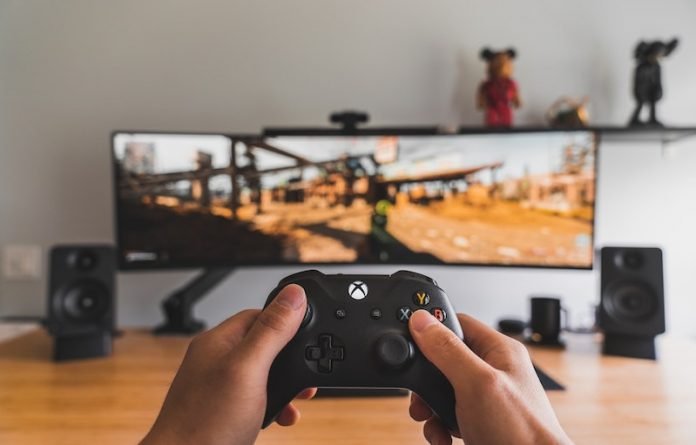
Scientists from Georgia State University found frequent players of video games show superior sensorimotor decision-making skills and enhanced activity in key regions of the brain as compared to non-players.
the findings suggest that video games could be a useful tool for training in perceptual decision-making.
The research is published in the journal Neuroimage: Reports and was conducted by Mukesh Dhamala et al.
In the study, the team tested 47 college-age participants, with 28 categorized as regular video game players and 19 as non-players.
The people lay inside a functional MRI machine with a mirror that allowed them to see a cue immediately followed by a display of moving dots.
Participants were asked to press a button in their right or left hand to indicate the direction the dots were moving, or resist pressing either button if there was no directional movement.
The study found that video game players were faster and more accurate with their responses.
Analysis of the resulting brain scans found that the differences were correlated with enhanced activity in certain parts of the brain.
These results suggest that video game playing potentially enhances several of the subprocesses for sensation, perception, and mapping to action to improve decision-making skills
These findings begin to illuminate how video game playing alters the brain in order to improve task performance and their potential implications for increasing task-specific activity.
The study also notes there was no trade-off between speed and accuracy of response—the video game players were better on both measures.
This lack of speed-accuracy trade-off would indicate video game playing is a good candidate for cognitive training as it pertains to decision-making.
If you care about brain health, please read studies about two common habits that could make your brain age fast, and low-carb diet that could help reverse brain aging.
For more information about health, please see recent studies about how Alzheimer’s disease becomes worse in the brain, and cases showing that after 4 strokes, rare disease and brain surgery, woman helps others.
Copyright © 2022 Knowridge Science Report. All rights reserved.



